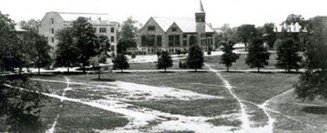Why do tasks get easier the more we do them?
by Lori Lehman
Ever wonder why things get easier the more you do them? Or, if we can actually get smarter over our lifetime? Many people believe that you are either born smart, or not, and nothing will change that. Many neuroscientists believe that the brain is more like a muscle and the more you work it, the stronger it gets. William James developed the idea in 1890 that our brain could change, adapt, and even continue to grow into adulthood. Many psychologists did not agree until the 1970’s when multiple studies began to emerge that strengthened James’ hypothesis.
But why is this important? If you’re like me, I often get frustrated when my brain can’t seem to keep up with the mental gymnastics I want it to perform. I forget words, I can’t remember how to do that one thing that I only do once a year, or I must rely on notes to remember details. So, it stands to reason that if I want my brain to perform better, I need to work it like I would if I was training for a marathon. Neuroscientists call this Neuroplasticity which is the brain’s ability to grow, create stronger networks or neurons, and reorganize if needed.
Imagine you go to get your mail and cut across your lawn rather than use the sidewalk. When you head back to your house you should notice that you can see your footsteps smashing down the grass, but the grass is still intact. Let’s say you continue to do this every day for years. How will your path in the grass change? If you take the same route long enough it will begin to kill the grass and wear a path. The University of Ohio modeled its sidewalk system on the footworn paths the students made, which were clearly their preferred paths to take to class. As you can see by the picture, it must have worked because we no longer see walking paths anymore. And many Native American trails became our modern-day highway system including the infamous Route 66.
The way these paths evolved is very similar to what happens in your brain. Neurons have the ability to grow more legs and synapses which allow them to connect to other neurons. These connections are how electricity and information move through your brain. When we do something once, a new connection is made but it is weak, just like the first time you cut across your lawn. When we do it repeatedly, the neurons make
more connections, the electric pulses get stronger, and the task gets easier. Like when the students at the University of Ohio took the same paths to and from class for years. This is why our 9th-grade math teachers made us do similar problems over and over in class and then assigned even more homework. Because the more you do something the stronger your
neural pathways get and the easier the task becomes. 20 years later when you need to dust off those old algebra skills, the stronger the pathway you built, the faster they come back to you.
This is why playing word games, card games, reading, and trying new things help make our brains stronger, healthier, and better able to handle the stressors of our jobs and family life. This is also one of the reasons why the programs at The Fort Wayne Center for Learning are so successful.
We work with students and repeat the material until those connections are strong and will be there when the student needs them.
The next time you feel like your brain is sluggish and needs a jumpstart, try doing some mental jumping jacks or take your brain for a jog. Wake up your neurons with some trivia or a crossword.




